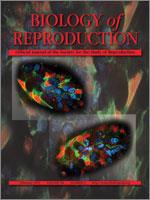Protamines are short and highly basic sperm-specific nuclear proteins that replace somatic histones during spermiogenesis in a process that is crucial for sperm formation and function. Many mammals have two protamine genes (PRM1 and PRM2) located in a gene cluster, which appears to evolve fast. Another gene in this cluster (designated protamine 3 [PRM3]) encodes a protein that is conserved among mammals but that does not seem to be involved in chromatin condensation. We have compared protein sequences and amino acid compositions of protamines in this gene cluster, searched for evidence of positive selection of PRM3, and examined whether sexual selection (sperm competition) may drive the evolution of the PRM3 gene. Nucleotide and amino acid analyses of mouse sequences revealed that PRM3 was very different from PRM1 and from both the precursor and the mature sequences of PRM2. Among 10 mouse species, PRM3 showed weak evidence of positive selection in two species, but there was no clear association with levels of sperm competition. In analyses from among mammalian species, no evidence of positive selection was found in PRM3. We conclude that PRM3 exhibits several clear differences from other protamines and, furthermore, that it cannot be regarded as a true protamine.
How to translate text using browser tools
13 October 2010
Protamine 3 Shows Evidence of Weak, Positive Selection in Mouse Species (Genus Mus)—But It Is Not a Protamine
Juan Martin-Coello,
Montserrat Gomendio,
Eduardo R.S. Roldan
ACCESS THE FULL ARTICLE

Biology of Reproduction
Vol. 84 • No. 2
February 2011
Vol. 84 • No. 2
February 2011




